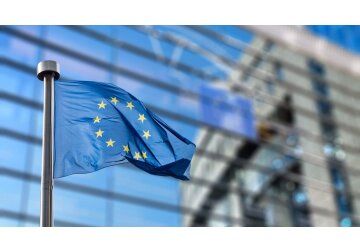
The European Union to more than double quotas for the tariff-free supply of plums, grapes, apples and other agricultural products by Moldova to the EU.
The EU Delegation to Moldova reported this, noting that the European Commission today approved a regulation that temporarily improves market access for the remaining seven products from Moldova that are still subject to tariff quotas when imported into the EU. This is a demonstration of EU's solidarity designed to help Moldova deal with the loss of its main markets and transit hubs for these key agricultural products resulting from Russia's unjustified war of aggression against Ukraine, according to the EU report. Now, virtually all Moldovan goods can already enter the EU tariff-free under the EU-Moldova Deep and Comprehensive Free Trade Area (DCFTA). The proposed measures cover the remaining 7 products whose exports from Moldova to the EU are not yet fully liberalized: plums, table grapes, apples, tomatoes, garlic, cherries and grape juice. The decree more than doubles - for a period of 1 year - the amount of these products that can be imported tariff-free from Moldova into the EU. The potential tariff-free volumes will now be worth about 55 million euros, including about 10 million euros of plums and 27 million euros of table grapes. Additional liberalization of exports to the EU will help Moldovan producers and exporters overcome market losses they suffered as a result of the war in Ukraine. Together with increased access to road transport to the EU (negotiations between Moldova and the EU are currently underway), liberalization should make it much easier for Moldovan exports to and through the EU. In addition, the EU is open to discussing further mutual liberalization, which would allow the EU and Moldova to move one step further toward full trade liberalization. This proposal by the European Commission must now be reviewed and agreed upon by the European Parliament and the Council of the European Union. As noted in the EU materials, Moldova has enjoyed the benefits of the Association Agreement, including the Deep and Comprehensive Free Trade Area between Moldova and the EU (DCFTA) since 2014. This system of preferential trade has allowed Moldova to benefit from the elimination of tariffs on all but seven agricultural products exported to the EU. Moldova also has increased access to the EU services market and better conditions for investment. For its part, Moldova undertook to harmonize its legislation with that of the EU in a wide range of areas. The temporary and exceptional measures proposed today by the European Commission will further develop existing trade flows from Moldova to the EU and support Moldova's economy. This is in line with the main objectives of the Association Agreement, which are to create conditions for enhanced economic and trade relations, leading to Moldova's gradual integration into the EU internal market, as well as to contribute to strengthening democracy and political, economic and institutional stability in Moldova. The EU also supports Moldova with significant financial assistance to help the country cope with the situation created by the war in Ukraine. // 09.06.2022 – InfoMarket







